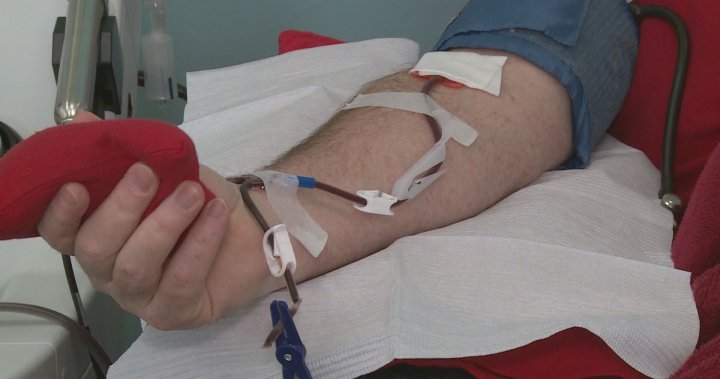
Canadian Blood Services to recommend end of blood donation ban on gay, bisexual men
Global News
Canadian Blood Services is preparing to ask Health Canada to allow it to scrap questions about gender or sexuality, basing screening on higher-risk sexual behaviour instead.
An end to the ban on gay and bisexual men from donating blood — promised by Prime Minister Justin Trudeau in 2015 — is set to be recommended within weeks in favour of new screening criteria based on sexual history and behaviour.
Canadian Blood Services is preparing to ask Health Canada to allow it to scrap questions about gender or sexuality, basing screening on higher-risk sexual behaviour instead. Potential donors could be asked if they have had multiple sexual partners, and about their sexual behaviour instead of their sexuality and gender.
“Sexual behaviour, not sexual orientation, determines risk of sexual transmission of HIV. Our proposed criteria will aim to precisely and reliably identify those who may have a transfusion-transmissible infection, especially in the window period, regardless of gender or sexual orientation,: aid Catherine Lewis, a spokeswoman for Canadian Blood Services, who declined to comment on the specifics of the recommendation.
Currently men volunteering to give blood are asked if they have had sex with a man in the last three months. Women wishing to donate are asked if in the last three months they have had sex with a man who in the last 12 months had sex with another man.
The blood service says it is preparing to cite evidence from countries which do not ask donors such questions, as well as research on risk of HIV transmission, in its submission to Health Canada within the next six weeks.
A study of research into HIV transmission between January 2001 and May 2012 by the Public Health Agency of Canada found that “all studies consistently reported that anal intercourse is a higher-risk act than vaginal intercourse, which in turn is a higher-risk act than oral intercourse.”
The way the screening is currently set up lacks nuance, and also doesn’t address people who are transgender, two-spirit, or otherwise don’t confirm to binary genders, said Nathan Lachowsky, one of several researchers whose work will inform Canadian Blood Services’ application.
“There’s a way in which to create solutions that are gender neutral, meaning it’s not about who you are in terms of your sex and gender,” said Lachowsky, an assistant professor in the School of Public Health and Social Policy at University of Victoria. “That simplifies the system and makes it more accessible to more Canadians.”













